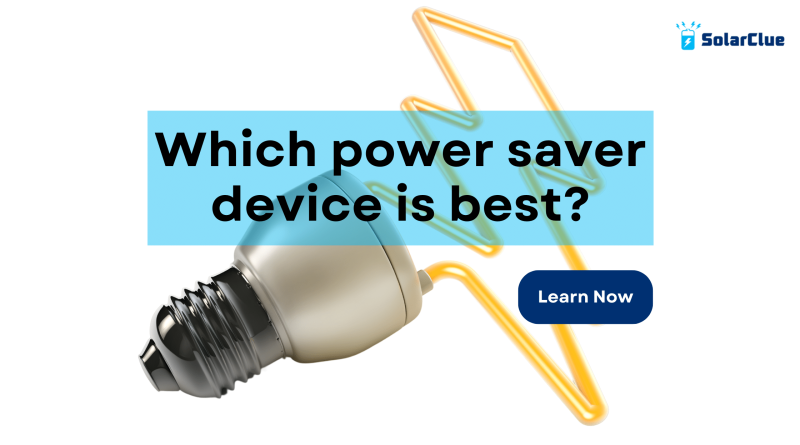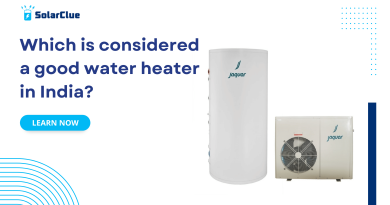Which power saver device is best?
To save electricity consumption, we need to know which power saver device is best for your home. Electricity bills are soaring high nowadays. Finding ways to reduce energy consumption has become a top priority for every Indian households.
One of the biggest contributors to high utility bill is the water heater installed in our homes. We need to make sure that we install a water heater which will consume less energy. In this blog, we will discuss about one such water heater – a heat pump. Let’s get started.
Table of Contents
Why is it Important to Reduce Electricity Consumption?

Reducing electricity consumption is crucial for several reasons. Firstly, high electricity bills can put a significant strain on household budgets. This makes it difficult for families to manage their finances effectively. As the cost of living continues to rise, every penny saved on utility bills can make a difference.
Secondly, the production of electricity often relies heavily on non-renewable resources like coal, natural gas, and oil. These have a detrimental impact on the environment. The burning of these fossil fuels contributes to greenhouse gas emissions, air pollution, and climate change, posing a threat to our planet.
By reducing our electricity consumption, we can lower our carbon footprint, minimize our reliance on finite resources, and contribute to a more sustainable future. By making conscious choices to reduce electricity consumption, individuals and households can not only save money but also play a vital role in protecting the environment.
What is a Heat Pump and How Does it Work?
A heat pump is an innovative appliance that uses electricity to transfer heat from the surrounding air to the water in the tank, rather than generating heat directly. It works by extracting heat from the air and using it to heat the water. This makes the process much more efficient than traditional water heaters.
A heat pump system consists of three main components: an exhaust fan, a compressor, and a storage tank. Here’s how these components work together to provide efficient water heating:
- Exhaust fan: This fan draws in air from the surrounding environment, which serves as the heat source for the water heater.
- Compressor: The compressor compresses the air drawn in by the fan, raising its temperature through the compression process. This heated air is then circulated through a coil inside the storage tank.
- Storage tank: The storage tank contains the water that needs to be heated. As the hot air from the compressor circulates through the coil inside the tank, it transfers its heat to the water, raising its temperature.
How is a Heat Pump Power Saver?
Heat pump systems are considered power savers because they consume significantly less energy than traditional water heaters, like a geyser. In fact, they can save up to 75% on energy costs when compared to standard electric water heaters. This remarkable efficiency is achieved by harnessing the heat already present in the surrounding air, rather than generating heat from scratch.
What are the Other Benefits of Heat Pump Water Heaters?
In addition to being cost-effective, heat pump water heaters offer several other benefits:
1. Long Lifespan
Heat pumps are known for their exceptional durability and longevity. Unlike geysers, which have an average lifespan of 8-12 years, heat pump models can last up to 15 years or more with proper maintenance. This extended lifespan translates into long-term cost savings, as homeowners can avoid frequent replacements and associated expenses.
2. Reduce Water Wastage
Traditional water heaters can waste a significant amount of water while waiting for hot water to reach the tap. However, heat pumps are designed to heat water more efficiently. This reduces the amount of water wasted during this waiting period. This not only conserves a precious natural resource but also helps homeowners save on their water bills.
3. Positive Environmental Impact
By consuming less electricity than conventional water heaters, heat pump models have a much smaller carbon footprint. This reduced energy consumption translates into lower greenhouse gas emissions, making heat pump water heaters an eco-friendly choice for environmentally conscious homeowners. Additionally, the absence of combustion in their operation eliminates the release of harmful pollutants into the air, further contributing to a cleaner environment.
4. Efficient in Cold Climates
Unlike popular opinion, a heat pump works efficiently in cold climates as well. The advanced technology used in heat pump systems allows it to absorb heat from the surrounding even during extreme cold climates.
Conclusion
If you are looking for ways to save electricity, you need to know which power saver device is best. The answer is a heat pump for meeting your hot water needs. By investing in a heat pump water heater, homeowners in India can enjoy significant savings. This will also contribute to a more sustainable future for the generations to come. A heat pump is definitely the best investment for every Indian household.
Visit SolarClue® to see the best heat pump water heaters. SolarClue® is an online marketplace where solar energy products are sold at discounts up to 50%.




